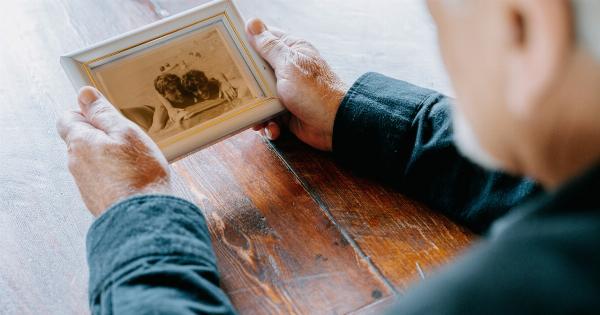Grief is a natural and inevitable process that comes with the loss of a loved one. It can be overwhelming and intense, making it difficult to go about your daily life.
The first week after the loss of a loved one can be particularly difficult to navigate, as emotions are running high and practical matters need to be handled. Here are some tips for coping with grief during the first week:.
Accept that You’re Grieving
Grief can be all-consuming and it’s important to acknowledge and accept your emotions. This is not the time to put on a brave face or suppress your feelings. Allow yourself to grieve openly and without judgement.
Remember that everyone grieves differently and there is no “right” way to do it.
Take Time Off Work
The death of a loved one is a traumatic event and it’s important to take time off work to process your emotions. Many employers offer bereavement leave, so check with your HR department.
If you’re unable to take time off, try to schedule a meeting with your boss to explain your situation and ask for support during this difficult time.
Talk to Someone
Talking about your feelings with a trusted friend, family member, or mental health professional can help alleviate feelings of isolation and provide comfort during this difficult time. Don’t be afraid to ask for help or support.
Take Care of Yourself
Grieving can take a physical toll on your body. Be sure to take care of yourself by eating well, getting enough sleep, and engaging in physical activity like yoga or going for a walk.
It’s also important to avoid using drugs or alcohol as a coping mechanism, as this can make your grief worse in the long run.
Be Mindful of Practical Matters
While grieving, it’s important to be mindful of practical matters that need to be handled. This might include contacting the funeral home, notifying family and friends of the death, and handling any legal matters related to the estate.
Don’t be afraid to ask for help with these tasks if you need it.
Don’t Bottle Up Your Emotions
Bottling up your emotions can lead to more intense and prolonged feelings of grief. It’s important to express your emotions in healthy ways. This might include journaling, creating art, or participating in a support group.
Find Comfort in Rituals
Rituals can provide a sense of comfort and routine during a time of upheaval. This might include lighting a candle each night, visiting the park where you used to go with your loved one, or cooking a meal that was a favorite of theirs.
Ask for Help When You Need It
Grieving is a difficult process, and it’s okay to ask for help when you need it. Reach out to a trusted friend or family member to talk about your feelings or ask for help with practical matters.
Consider working with a mental health professional who can provide support and guidance.
Celebrate Your Loved One’s Life
When we lose someone, it can be easy to focus on the negative aspects of their passing. Try to shift your focus to celebrating their life and the memories you shared together.
This might include creating a photo album, planting a tree in their memory, or making a charitable donation in their name.
Know that It’s Okay to Feel Conflicted
Grief can bring up conflicting emotions, including feelings of relief, guilt, and anger. Know that these feelings are normal and okay to experience. Be gentle with yourself and try to avoid judging your emotions or pushing them away.






























